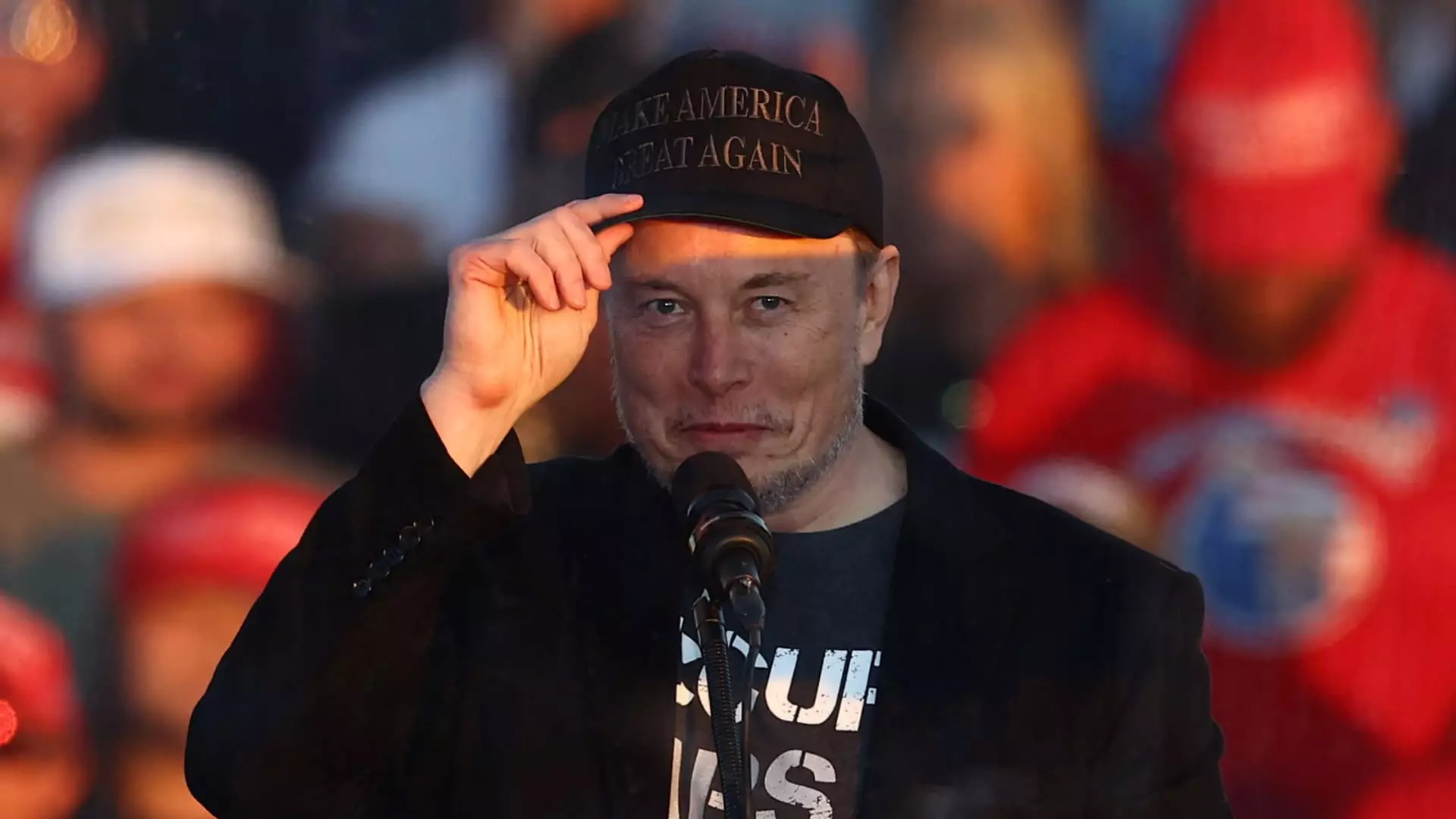In an unprecedented move reflecting both his controversial persona and the turbulent nature of global politics, Tesla CEO Elon Musk has publicly endorsed Germany’s far-right Alternative for Germany (AfD) party. This statement, made on the social media platform X (formerly Twitter), has ignited a firestorm of criticism and concern regarding his influence, particularly as he is also a prominent advisor to President-elect Donald Trump in the US. Musk’s declaration that “Only the AfD can save Germany” highlights not just his support for a political party known for its contentious and extremist views but also demonstrates a growing trend in which influential figures are channeling their power to sway political landscapes in various countries.
Musk’s endorsement was delivered via a post where he shared content from Naomi Seibt, a known far-right influencer who has a troubling history related to white nationalism and climate change denial. This situation illustrates the alarming intertwining of social media celebrity and political activism, as Musk carries significant weight with a following of over 200 million. The influence of such endorsements cannot be underestimated, particularly when the political climate in Germany is already strained, with the AfD gaining traction ahead of critical elections.
In the backdrop of these developments, critics have labeled Musk’s support for the AfD as an endorsement of extremist ideology. Senator Chris Murphy (D-Conn.) denounced him as an “out of touch billionaire,” framing Musk’s stance within a larger narrative of hate politics. The AfD’s values are rooted in controversial beliefs, including rehabilitating nationalism in a country still grappling with its historical challenges. The support for this group raises concerns about the potential normalization of extremist views in mainstream discourse.
As tensions escalate within Germany’s political sphere, Chancellor Olaf Scholz swiftly dismissed Musk’s assertion regarding the AfD’s role in “saving” Germany. Under his leadership, the dissolution of the left-wing coalition last November left a political vacuum that the far-right party is eagerly exploiting. As research indicates, the AfD is currently polling second ahead of the upcoming elections, reflecting a discontent among voters that extremist parties often capitalize on during times of social and economic upheaval.
The AfD’s platform includes policies opposing military aid to Ukraine and advocating for a halt to sanctions against Russia—aligning with Musk’s sentiments on the matter. This convergence of ideologies illustrates a broader trend of rising far-right movements across Europe, with similar parties experiencing gains in countries such as Austria, Finland, and the Netherlands.
While Musk’s endorsement of the AfD suggests a shift in his engagement with European politics, it also raises questions about his business dynamics within the region. His Tesla enterprise has faced criticism from the AfD, particularly concerning the company’s Berlin factory and its perceived economic impact on local communities. The party’s opposition to electric vehicles aligns with a populist skepticism towards what they view as elitist climate policies, which they believe undermine Germany’s automotive industry.
Additionally, Tesla’s performance in Europe has faced challenges over the past year. With a significant decline in sales compared to a broader market drop, it’s evident that the path for Tesla in Europe is fraught with hurdles. In light of these developments, Musk’s political maneuvers could be seen as attempts to bolster both his personal brand and business interests in a region that remains uncertain.
This incident is not isolated; it follows a pattern of Musk engaging with far-right figures across the globe, including support for right-wing politicians in Italy and the UK. His connections to leaders like Argentina’s Javier Milei, who identifies as an anarcho-capitalist, further illustrate a strategic alignment that transcends borders. Musk’s actions indicate a willingness to engage with and endorse populist movements that resonate with his personal ideology, irrespective of their potentially divisive ramifications.
Elon Musk’s endorsement of the AfD not only signifies a controversial intersection of wealth, political influence, and social media but also serves as a poignant reminder of the shifting tides in global politics. The combination of his profound impact on both industry and political discourse raises critical questions about the responsibilities of influential individuals in shaping the world stage.

